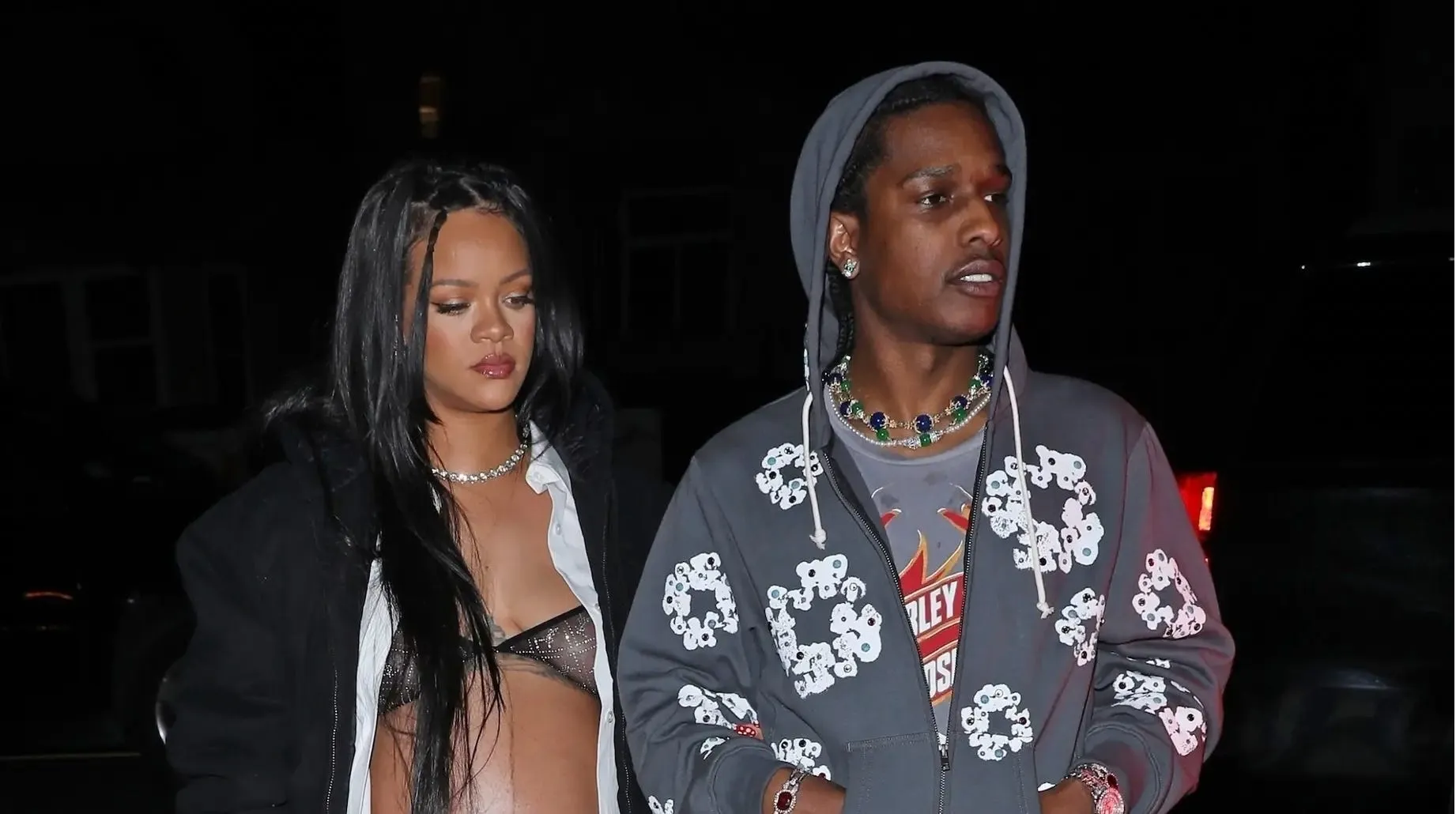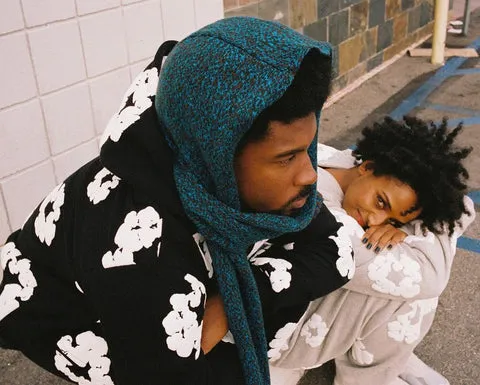Denim Tears Changing the Face of Streetwear
Denim Tears, founded by Tremaine Emory, has become one of the most influential brands reshaping the narrative of modern streetwear. Emerging from collaborations with icons like Kanye West and Virgil Abloh, Emory built a label rooted in cultural expression and historical storytelling. The brand merges high fashion aesthetics with deeply personal and political messages, focusing on the African diaspora’s experience. Denim Tears has managed to transcend typical streetwear boundaries by embedding social commentary into its designs. This rise represents not just a fashion movement but also a reclamation of Black history and creativity within global fashion.
The Vision Behind the Brand
Tremaine Emory’s vision for Denim Tears goes far beyond creating clothing. He views the brand as a platform to educate and provoke conversations around race, identity, and heritage. Every piece of clothing carries meaning, from cotton symbolism to patterns that represent Black struggle and resilience. Denim Tears isn’t just fashion—it’s storytelling through textiles. Emory aims to challenge the industry’s superficiality by creating garments that spark reflection. His approach to design seamlessly integrates activism, art, and history, ensuring that each collection contributes to a broader dialogue about social justice and cultural empowerment.
The Influence of Black History
One of the most defining aspects of Denim Tears is its direct connection to Black history and the African diaspora. Emory draws inspiration from the painful yet powerful history of slavery, specifically the cotton trade, which plays a central role in many collections. The cotton wreath motifs and embroidery are symbolic reminders of the exploited labor that built economies yet dehumanized Black people. By reclaiming these symbols, Emory transforms them into emblems of pride and remembrance. Denim Tears thus becomes not only fashion but a wearable monument to Black endurance, creativity, and contribution to global culture.
Collaborations That Shift Culture
Denim Tears has made significant cultural waves through high-profile collaborations that blend art, fashion, and activism. Partnerships with brands like Levi’s, Converse, and Dior have allowed Emory to amplify his message on larger stages. Each collaboration tells a story, merging the aesthetics of heritage brands with the political and cultural ethos of Denim Tears. These projects challenge both consumers and the fashion industry to engage more deeply with historical context. Instead of superficial partnerships, Denim Tears collaborations serve as bridges between mainstream fashion and marginalized narratives, redefining what it means to collaborate with purpose.
Storytelling Through Design
Every Denim Tears piece functions as a chapter in a larger cultural narrative. Emory uses design as a medium to educate and inspire awareness about the Black experience. The clothing often includes motifs, prints, and symbols referencing African roots, the diaspora’s struggles, and the beauty of resistance. The deliberate use of denim connects to workwear traditions, while the storytelling element adds layers of meaning often absent in conventional streetwear. This approach positions Denim Tears as both a fashion brand and a cultural archive—one that turns everyday garments into powerful storytelling tools that speak truth to power.
Challenging the Fashion Industry
Denim Tears disrupts the fashion industry by refusing to separate creativity from consciousness. Emory uses his platform to critique the systemic racism embedded within fashion’s history and institutions. His designs question who gets to tell stories in fashion and whose culture is being appropriated or ignored. By centering Black experiences, Denim Tears demands accountability and diversity within the fashion world. This approach has inspired other designers to embrace activism through art. In doing so, Emory has not only changed how clothes are made and marketed but also how fashion is perceived as a vehicle for change.
The Power of Symbolism
Symbolism is the lifeblood of Denim Tears. Emory’s consistent use of cotton wreaths, African motifs, and religious iconography transforms garments into political statements. Cotton, for instance, stands as both a reminder of oppression and a declaration of resilience. By reclaiming such symbols, Denim Tears empowers Black people to embrace their history without shame. Each item becomes a badge of pride, reflecting centuries of endurance and innovation. The brand’s symbolic storytelling encourages wearers to reflect on the interconnectedness of art, identity, and history—proving that fashion can serve as both memory and movement simultaneously.
Cultural Impact and Global Recognition
Denim Tears’ influence extends far beyond streetwear culture—it’s become a global phenomenon. Fashion enthusiasts, activists, and artists alike recognize the brand’s unique blend of aesthetic brilliance and cultural depth. Through international collaborations and exhibitions, Emory has placed the Black narrative at the forefront of fashion conversations worldwide. The brand’s message resonates across cultures, emphasizing shared humanity and historical consciousness. By achieving this balance between local identity and global appeal, Denim Tears challenges the homogeneity of mainstream fashion, proving that authenticity and storytelling can drive a brand’s success more powerfully than trends ever could.
Denim as a Canvas for Resistance
Denim has long symbolized work, durability, and rebellion. Emory uses it as a metaphorical canvas to depict stories of resistance and survival. Denim Tears transforms everyday fabric into a medium for protest and pride. Each collection reimagines denim’s role in society—from laborer’s uniforms to luxury statements—highlighting its deep ties to history and class. By doing so, Emory connects past injustices to present struggles, using fashion as a form of resistance. Denim becomes more than a textile; it becomes a declaration that creativity, identity, and heritage can coexist powerfully in one cultural expression.
The Future of Denim Tears
The future of Denim Tears Tracksuit lies in its unwavering commitment to truth and transformation. Tremaine Emory continues to expand the brand’s influence, emphasizing education, collaboration, and cultural preservation. His goal is not just to sell clothes but to create a lasting impact on fashion and society. As the industry evolves, Denim Tears stands as a blueprint for meaningful creativity—where art meets activism, and design becomes a tool for liberation. With each new project, the brand strengthens its legacy as a force redefining streetwear, proving that fashion can indeed change the face of culture forever.







